Sicilian Rhapsody
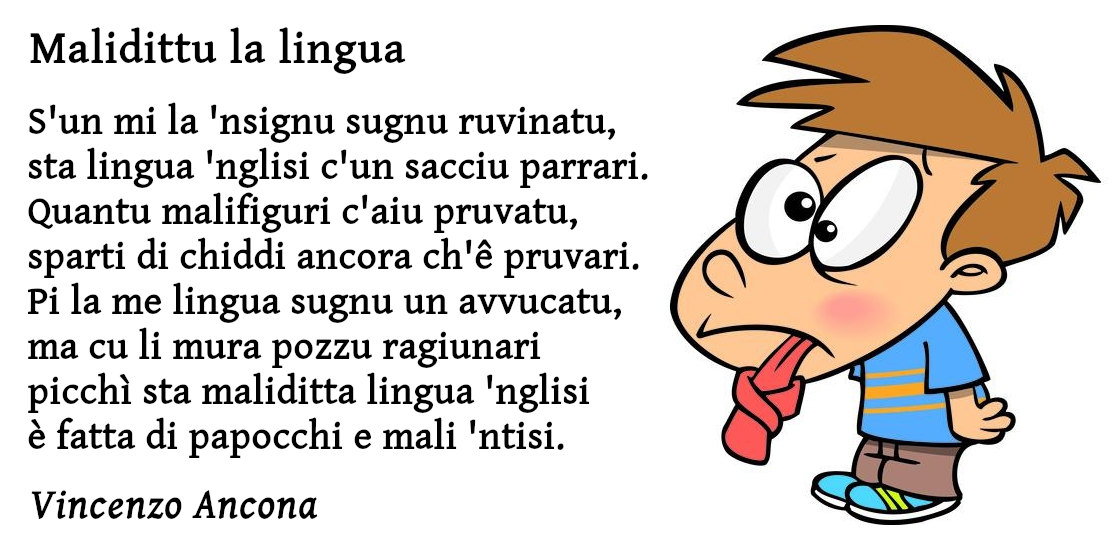
If I don't learn English soon, I'll be ruined.
Damn this language I don't know how to speak!
So much embarrassment have I endured,
not mentioning what else may be in store.
In my own language I'm a Cicero,
but I feel like I'm speaking to the wall
when I speak English; this accursed tongue
is made of scribbling, ciphers – it's all wrong!
– Vincenzo Ancona,
"Damned Language"
(trans. G. Cipolla)
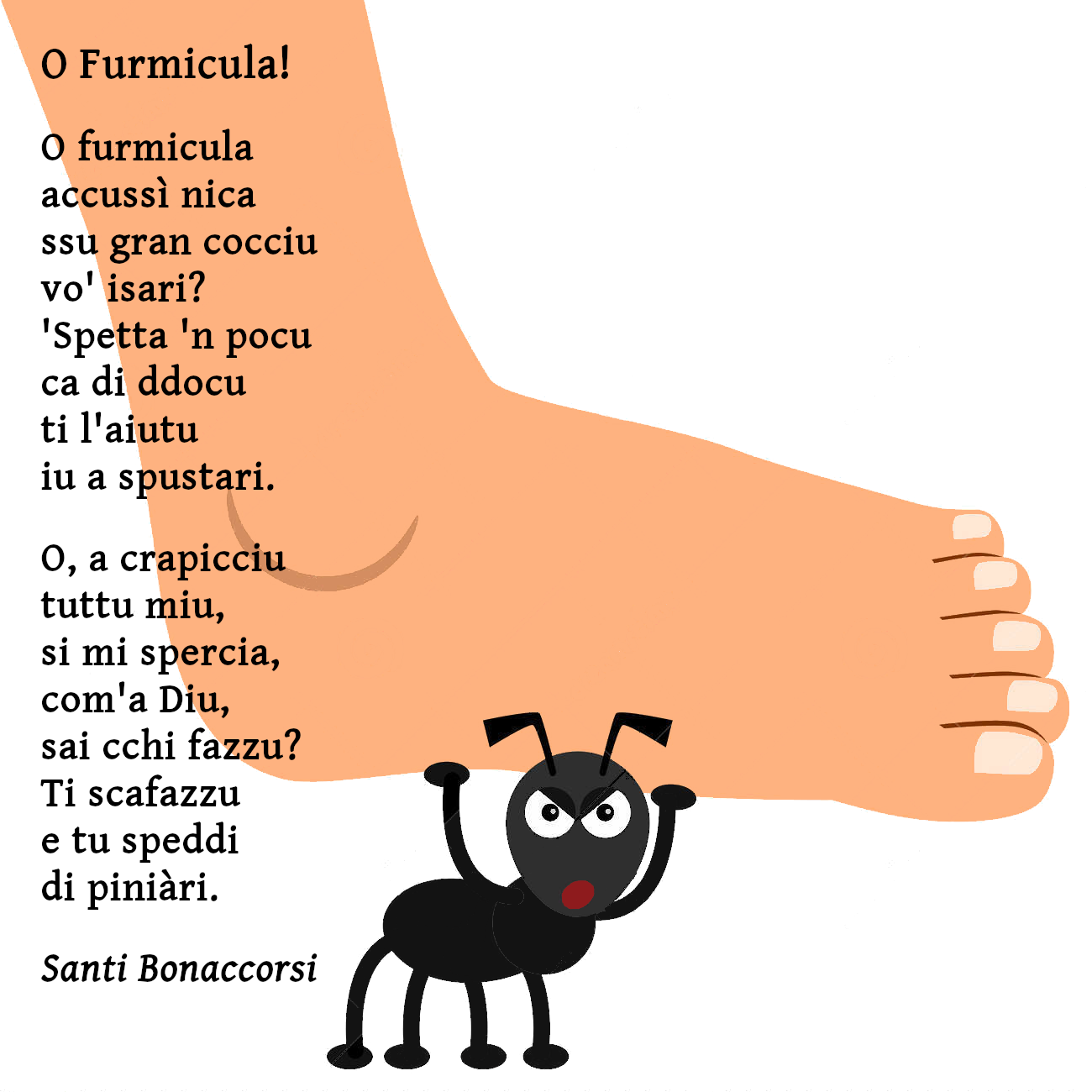
Oh ant
so little,
this big berry
you want to lift?
Wait a moment
down there.
I'll help you
move it.
Oh, for a whim
all my own,
if I'm in the mood
to play God,
do you know what I'll do?
I'll crush you
and you will cease
to suffer.
– Santi Bonaccorsi, "Oh Ant!"
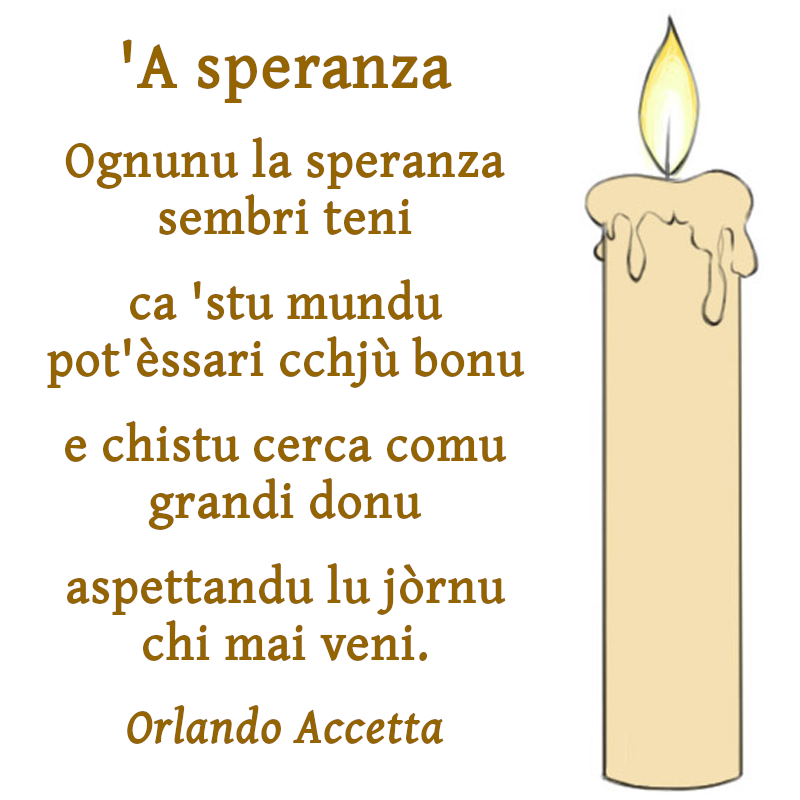
Everyone seems to have the hope
that this world can be better
and they search for a great gift
expecting the day that will never come.
– Orlando Accetta, "Hope"
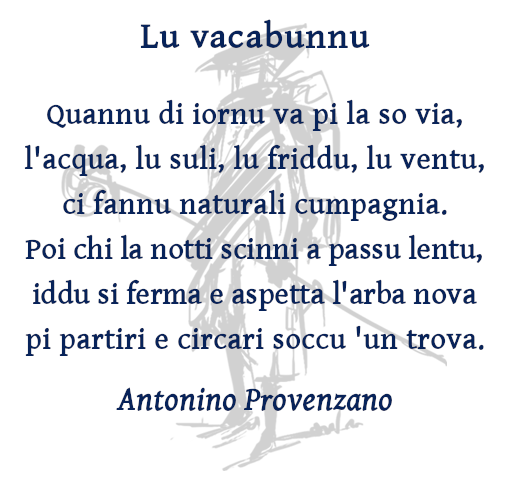
When he embarks upon his daily journey,
the rain and sun, the coldness and the wind,
become his natural companions.
Then when night falls with slow and measured steps,
he pauses and awaits the coming dawn,
to start again to seek what he can't find.
– Antonino Provenzano,
"The Vagabond"
(trans. G. Cipolla)
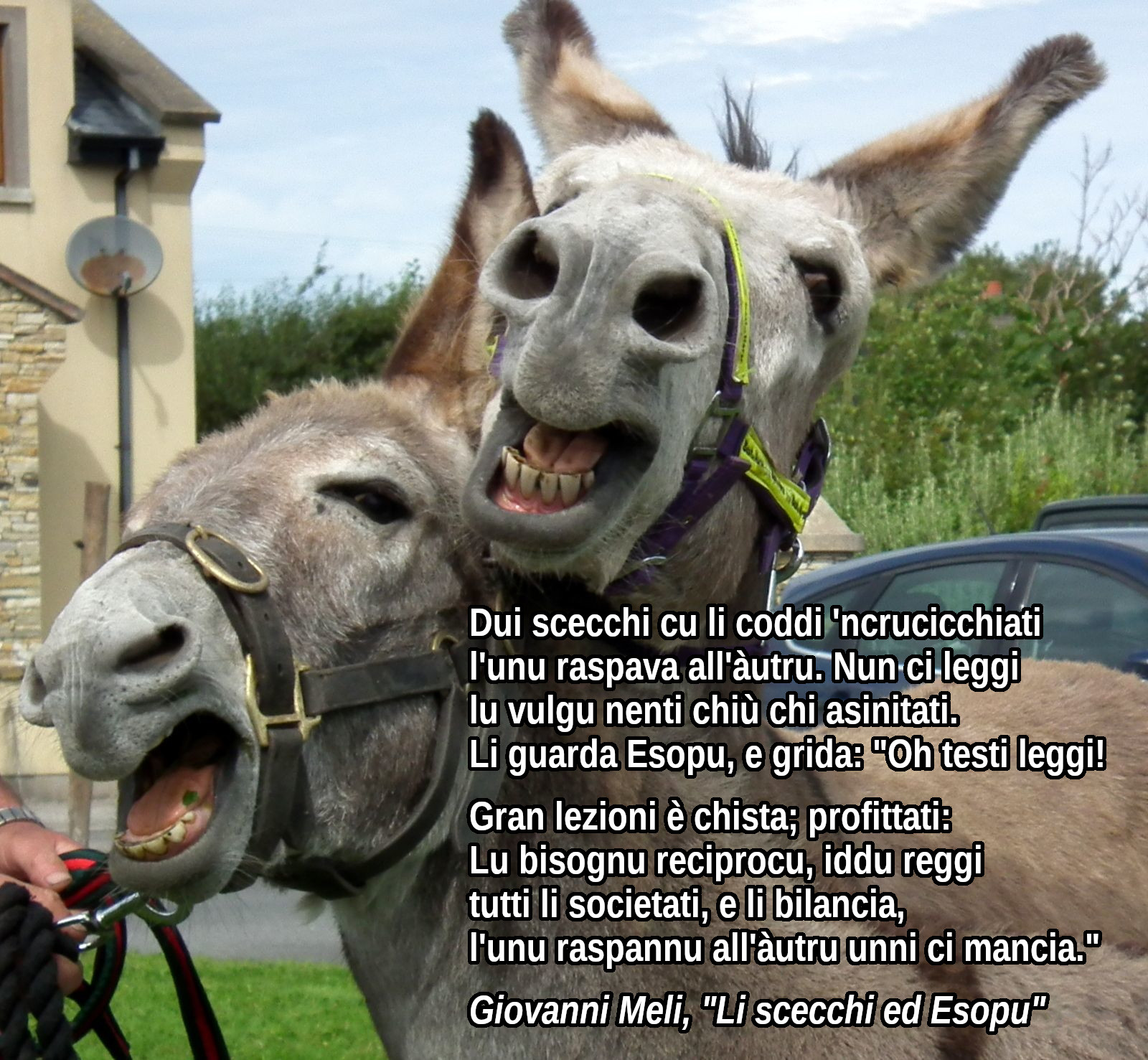
There were two donkeys whose necks formed a cross,
scratching each other. Common people read
a proof of asininity in this.,
but Aesop looked and said: "O empty heads!
This is a lesson mankind should not miss.
Interdependence is in fact the thread
that holds society in balanced pitch
by letting people scratch each other's itch."
– Giovanni Meli,
"The Donkeys and Esopu"
(trans. G. Cipolla)
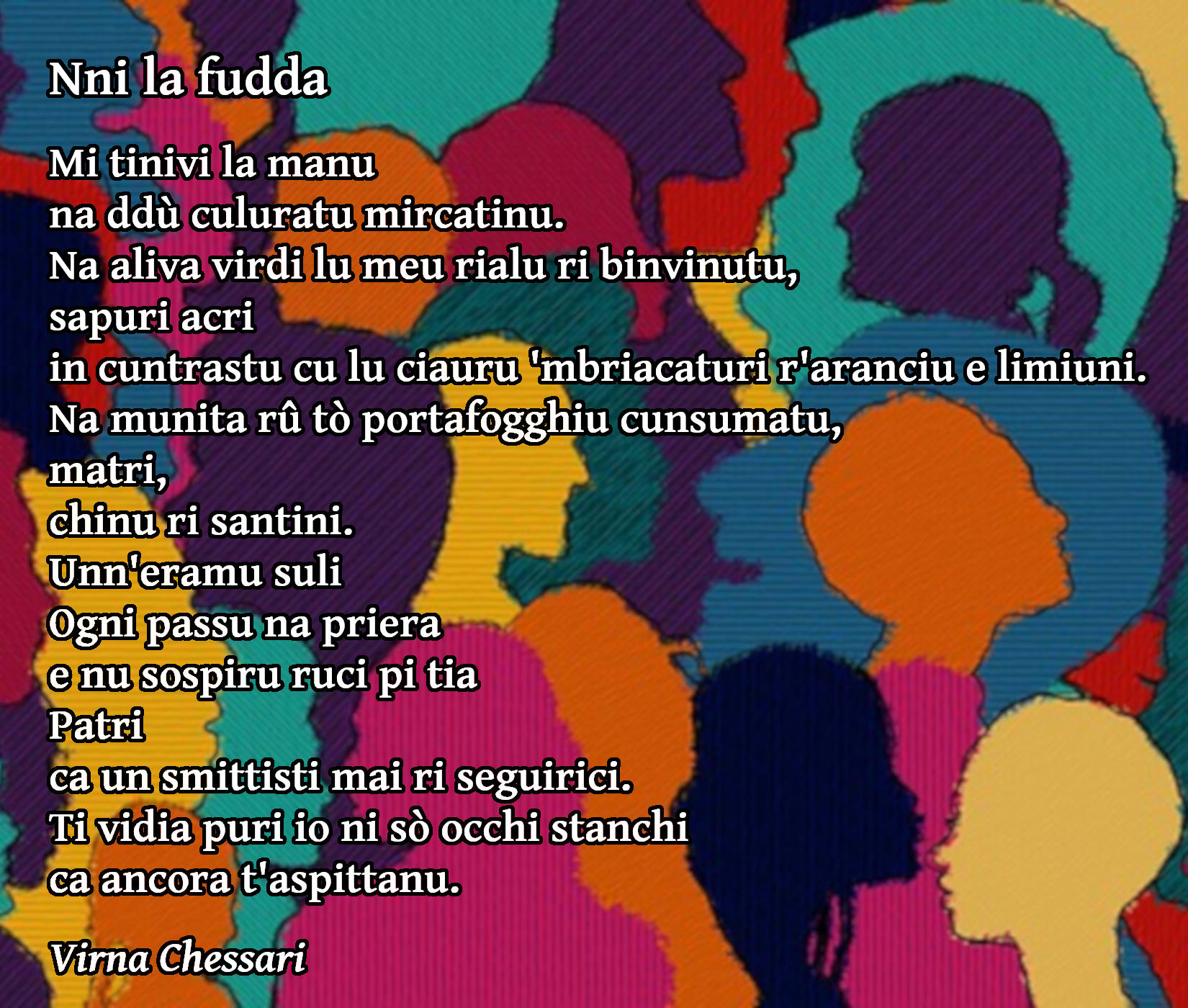
You held my hand
in that colourful street market.
A green olive my welcome gift,
sour taste
contrasting with heady orange and lemon scents.
A coin from your worn wallet, mum,
full of holy cards.
We were not alone.
Every step a prayer
and a sweet whisper for you
Father
who never stopped following us.
I used to see you too,
in her tired eyes
still waiting for you.
– Virna Chessari,
"Through the Crowd"
(trans. G. Cipolla)
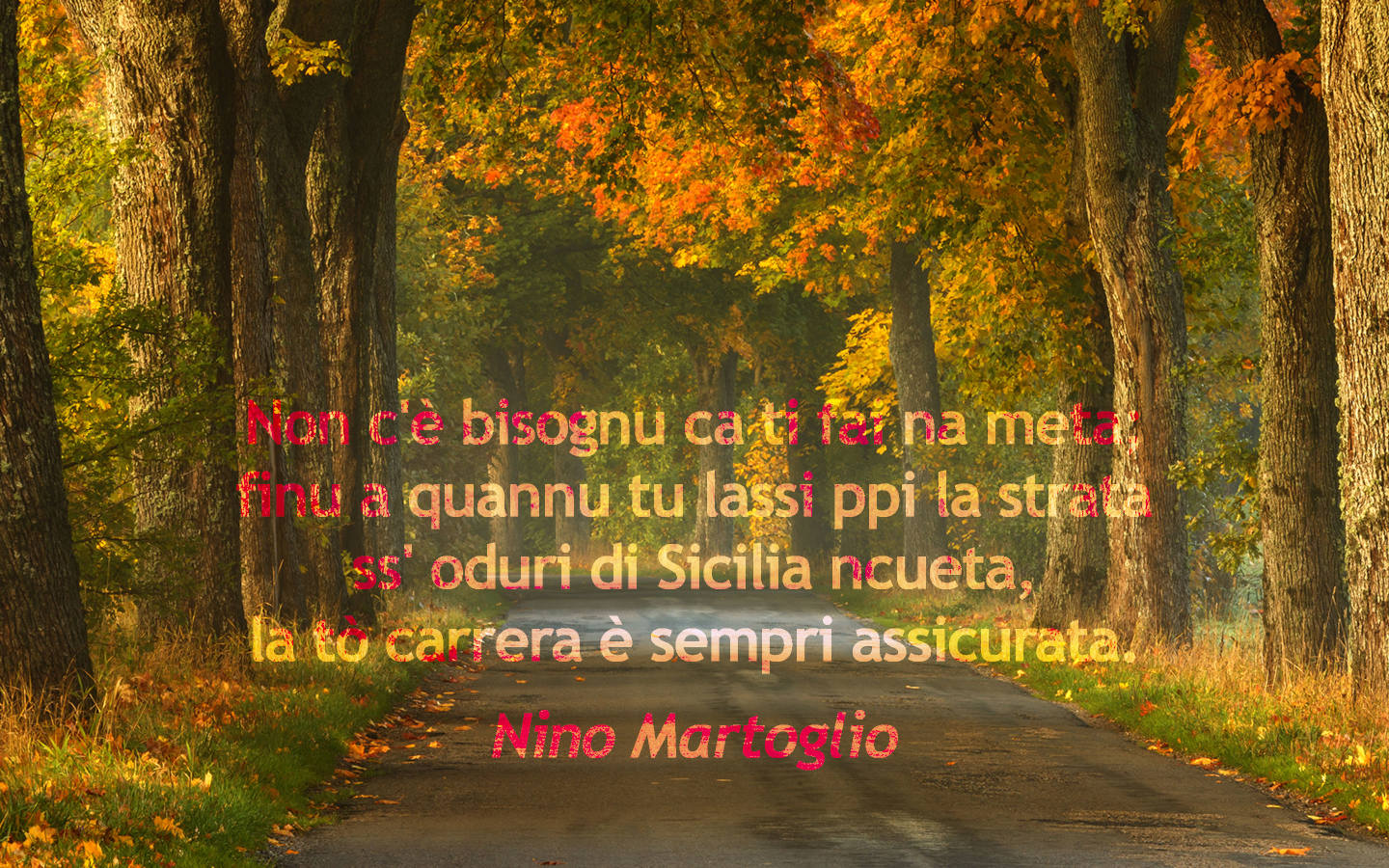
There is no need for you to reach your goal.
As long as you leave on each street you pass
of restless Sicily the scent and soul,
you'll always be assured of much success!
– Nino Martoglio,
"Dialugu tra l'autori e lu sò libru"
(trans. G. Cipolla)
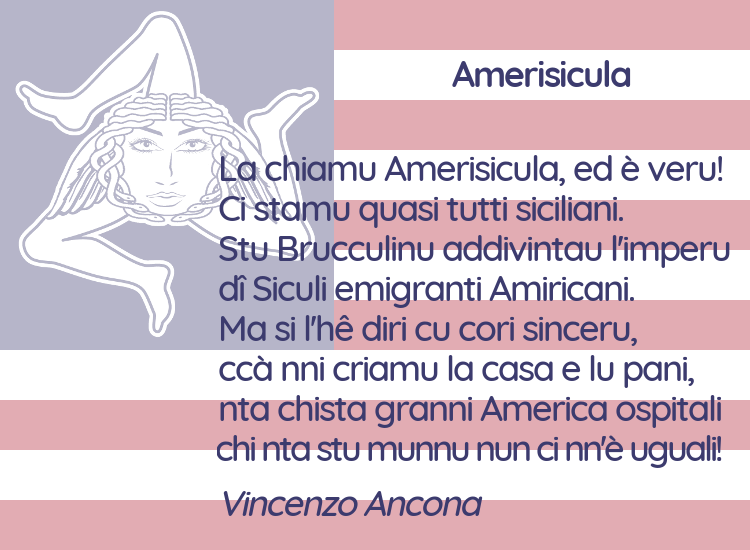
I call this land Amerisicula!
It's true! We're almost all Sicilians here.
The immigrants from Sicily have turned
this Brooklyn into their dominion.
But to speak truly what is in my heart
we've made our homes here, here we earn our bread
in this hospitable and great America
which has no equal anywhere on Earth!
– Vincenzo Ancona,
"Amerisicula"
(trans. G. Cipolla)
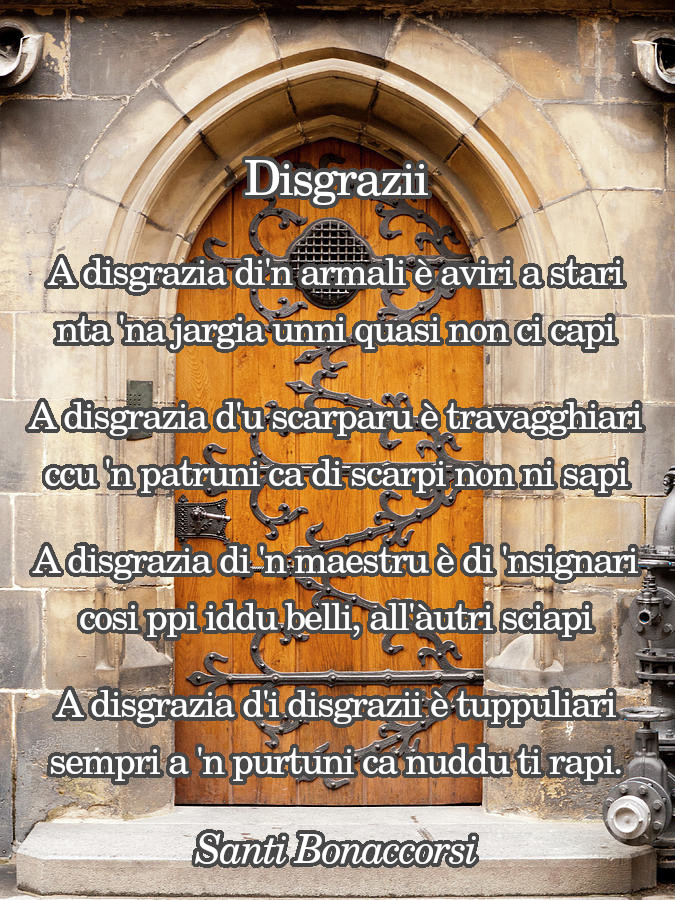
The disgrace of an animal is having to stay
in a pen that almost doesn't fit him
The disgrace of the shoemaker is to work
with a boss who does not know shoes
The disgrace of a teacher is to teach
what is beautiful to him, but to others dull
The disgrace of all disgraces is to knock
constantly at a door that no one will open for you.
– Santi Bonaccorsi, "Disgraces"
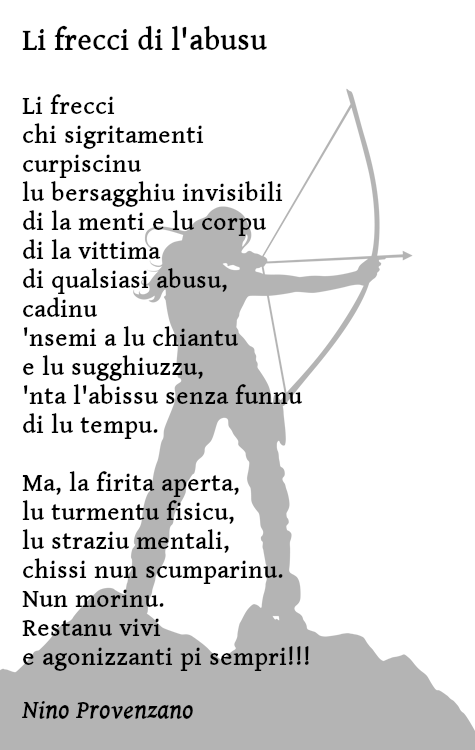
The arrows
that secretly
hit the invisible target
in the mind or body
of the victim of abuse,
fall together
with the silent tears,
despair, sobbing,
in the bottomless abyss
of time.
But, the open wounds,
the mental torment,
the physical pain,
do not vanish.
They do not die!
They remain alive,
in a state of
everlasting agony....
– Antonino Provenzano,
"The Arrows of Abuse"
(trans. G. Cipolla)
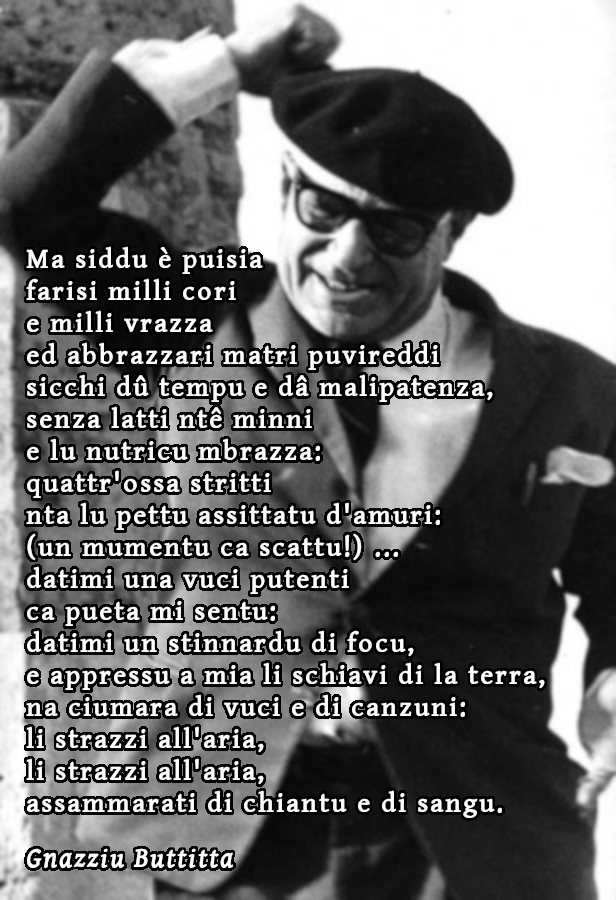
if it's poetry to sprout
a thousand hearts and arms
to squeeze wretched mothers
withered by time and suffering
denied milk in their teats
for their babes in arms –
their skin and bones taut
against a breast parched for love
(wait, I'm about to burst) –
then give me the power of words
so I'll know I'm a poet –
give me a firebrand –
the wretched of the earth's –
in floodtides of voices and songs
brandishing their rags
brandishing their rags
steeped in tears and blood ...
– Gnazziu Buttitta,
"I am not a poet"
(trans. J. Vitiello)
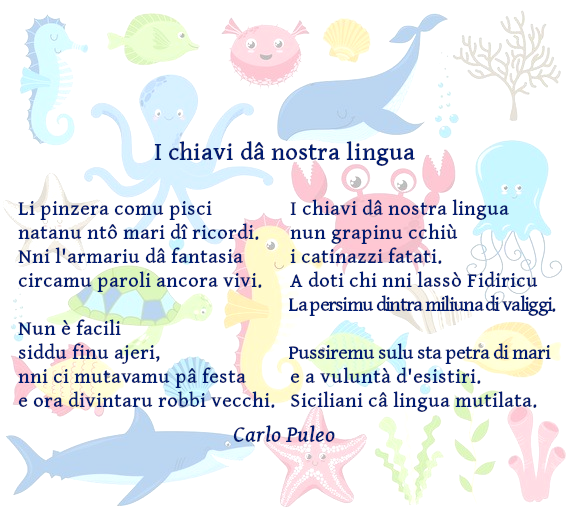
Our thoughts are like fishes
that swim in a sea of memories.
In the closet of fantasy
we search for words still alive.
It is not easy
since up to yesterday
we used them festively
now they've become throwaways.
The keys of our language
no longer open
the oracular deadbolts.
The dowry left to us by Frederick
is lost in millions of suitcases.
All we now have is this rock in the sea
and the will to exist.
Sicilians with a mutilated language.
– Carlo Puleo,
"The Keys of Our Language"
(trans. A. Dieli)
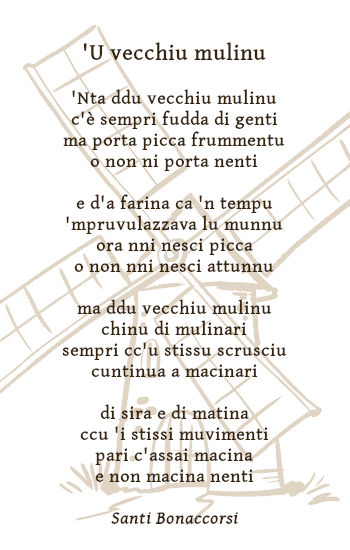
There's always a crowd of people
in that old mill
but they bring little grain
or they bring nil
now there's but a sconce
or none at all
of the flour that once
over the world did fall
but the old mill
full of millstones
always with the same sound
keeps on grinding
by night and by day
with the same motions
seems to be milling away
but it mills nothing
– Santi Bonaccorsi,
"The Old Mill"
(trans. A. Dieli)
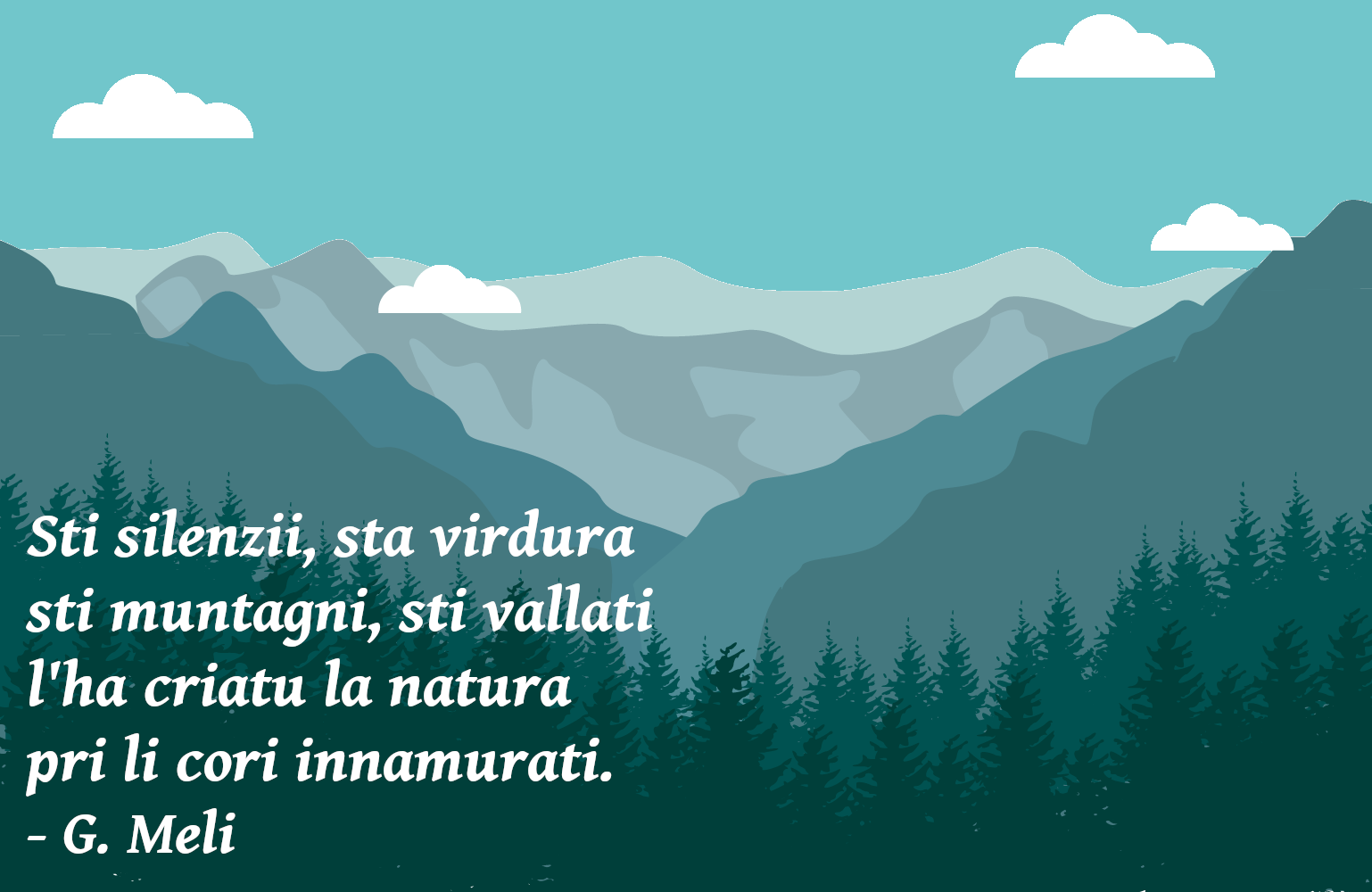
This quietude, this plant life,
these high mountains and these dales,
were by nature all created
for the hearts that are in love.
– Giovanni Meli,
"Bucolic Poems"
(trans. G. Cipolla)
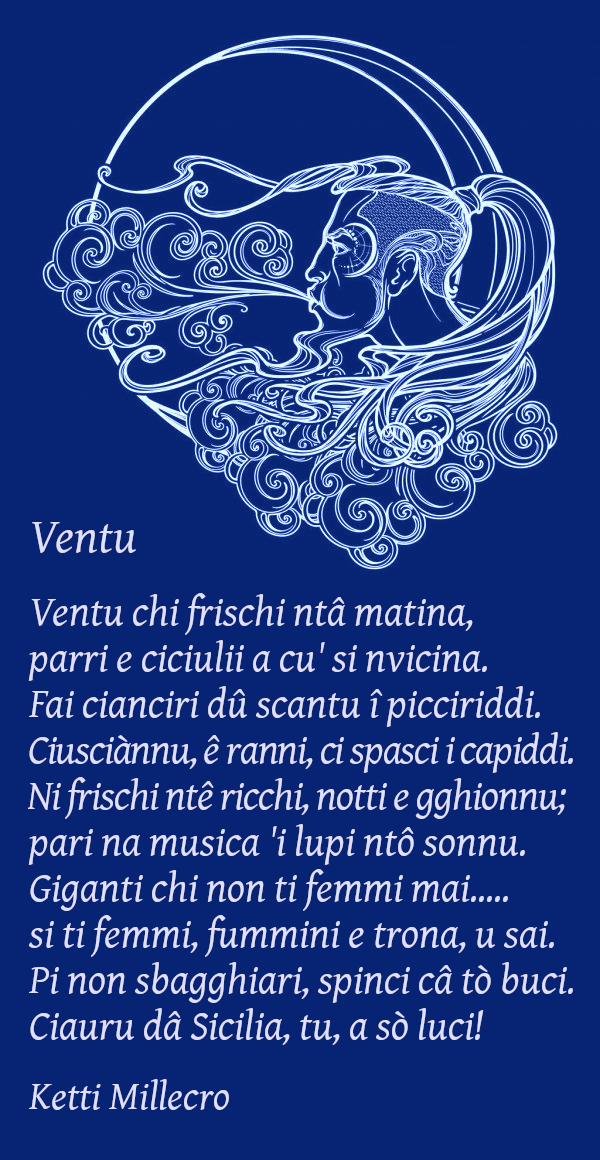
Wind, you that blow early in the morning,
speaking and whispering to those nearby,
you, who evoke fear in children's hearts
you, who blow hard, messing old people's hair
day and night, your whining is in people's ears.
Your sound is like wolves' howling in our sleep,
a giant that knows no respite or repose...
If you should stop, lightning and thunder follow,
as you know. Not to go wrong, push with your voice
the smell of Sicily, you, who are its light.
– Ketti Millecro,
"Wind"
(trans. G. Cipolla)


